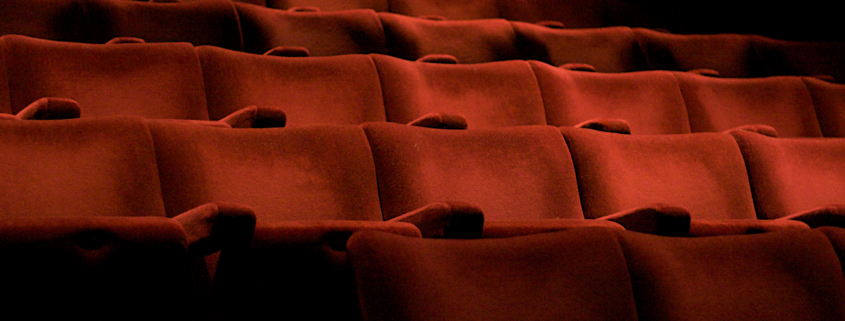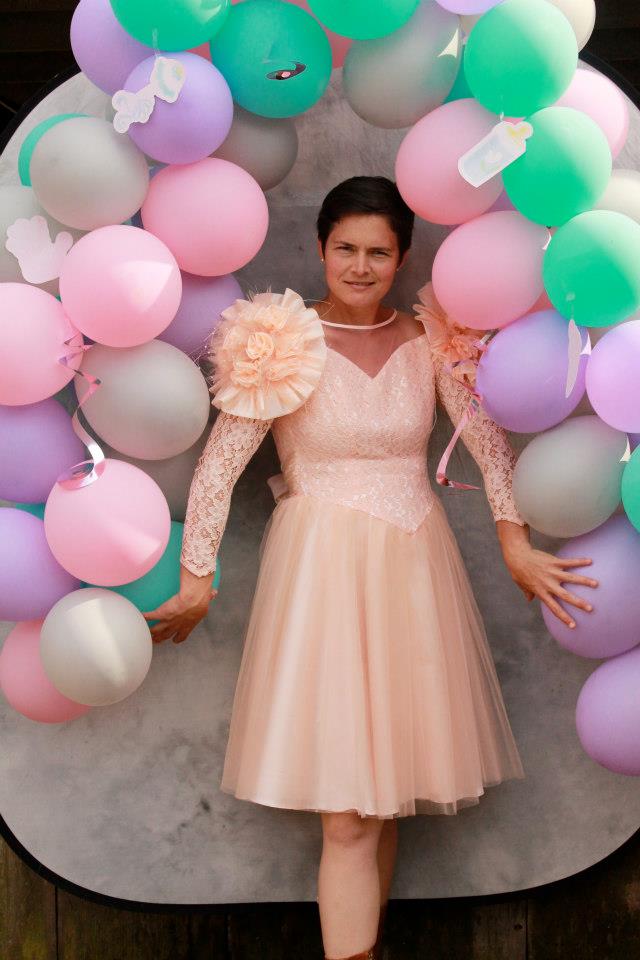Acts of Creation
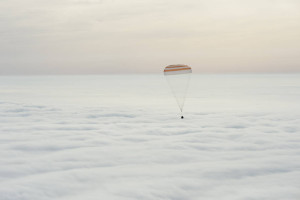
Photo Credit: (NASA/Bill Ingalls)
On March first, the American astronaut Scott Kelly returned from a year aboard the International Space Station. In the pictures he took from space, sunset cast a rosy blush over the Earth’s broad face. The aurora borealis skittered, green over the planet’s arc, and the Milky Way was a great starry sheet, torn up the middle. Kelly photographed American cities, burning on their electrical grids like sprawling light-spiders. In this moment, a view from above takes on all kinds of significance. It’s alternatingly calming and rattling. There we all are, the Americans, way down below, in the throes of the ugliest election cycle in memory. It seems like peace is reserved for space. Down here, we are drowning in noise.
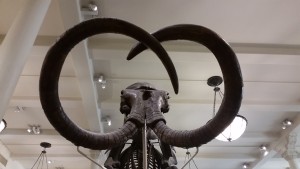
Photo credit: Mary Birnbaum
As Scott Kelly’s spaceship was descending, I was opening a new book. The Sixth Extinction was written by Elizabeth Kolbert, a science writer for the New Yorker. The extinction event referred to in the title is one that we are in the process of carrying out, because (in case you missed it) our species has a penchant for unchecked depletion of the environment. Books and essays on climate change are not fun to read, unless you like getting the shit scared out of you about the upcoming apocalypse. As Kolbert says in her introduction, “If extinction is a morbid topic, mass extinction is, well, massively so.” I didn’t want to read this book. I wanted to read Harry Potter with my daughter (she who will inherit my Earth). I wanted to abscond to a realm where the worst thing around is a horcrux, and even that can be dismantled by love. But my wise mentor, Sharman, herself an acclaimed nature writer, added the book to my reading list this term. Predictably, it was a great, important book. A necessary one. Kolbert describes the systematic whittling down of biodiversity, our oncoming age of erosion and simplification. Look around, she says, because in a best case scenario, fifty years from now a third of the species you see will have vanished.
Not long after Kolbert’s book was published, another necessary work appeared. Between the World and Me is a father’s letter to his son. Ta Nehisi Coates describes the way American “Dreamers” have profited from African American subjugation for centuries—indeed, this practice forms the basis of our earliest economics. Near the end of his message, he connects the violence of white supremacy to ecological violence. He says, “…the damming of seas for voltage, the extraction of coal, the transmuting of oil into food, have enabled an expansion in plunder with no known precedent. And this revolution has freed the Dreamers to plunder not just the bodies of humans but the body of the Earth itself.” Coates’s work deserves to be read and discussed by all conscientious Americans. Come for the lyrical prose, stay for the adroit account of contemporary white supremacy. There is a mindset among a certain political set which regards things like white privilege and climate change like some kind of Santa Claus, a quaint myth that one may choose to believe in, or not. The thing is, even if climate change were not occurring (a reality I won’t waste Internet space to debate), an ethos of plunder is deeply problematic.
The same species that engineered a Space Station is responsible for acts of extreme social and ecological depredation. We are capable of catastrophic consumption. And we also permit impoverishment of language. Paucity of speech has strategic value: when we oversimplify, when we deny nuance and complexity, we give the narrative of ignorance a broad berth. The blunt linguistic cinderblocks of hate speech have the power, for example, to induce a KKK rally near my Orange County home, in the year 2016. This is the same taut dialectic that thinks drill, baby, drill is cute, rather than violent. As Coates tells us, climate change and white supremacy are part of the same program of entitlement, the same culture of relentless diminishment. If anyone is still searching for evidence, the frontrunner for the Republican nomination is a racist billionaire, adept in the crude lexicon of plunder. And bodies are being battered and harassed at his mob-rallies all over the country.
Humans are also capable of recognizing subtlety and crafting observation-based arguments. We achieve our highest feats when we pay careful attention. David Foster Wallace built books as complex as space stations. Emily Dickinson’s quickstepping meanings steal over us when we least expect. Kolbert reminds us how the writings of John Muir inspired leaders to create Yosemite National Park, how Rachel Carson’s Silent Spring got the word out about the pesticide DDT. We are a wrecking ball of a species, but one which also produced algebra and opera and iambic pentameter.
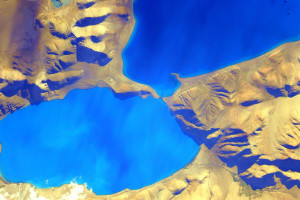
Photo credit: Scott Kelly
On the evening of March first, I was with my sister in New York to see the musical Hamilton. She’d been lucky to score the tickets last October, and accepted whatever seats were available. The tickets were sold at a discount due to a “partially obstructed view” but beyond that, we didn’t know where they would be until we arrived. We didn’t really care as long as they let us in the door. It turned out that we were in a box that hovered just above stage left. We had a bird’s-eye view of the performers, with a minor blind spot downstage. We also had a breathtaking unimpeded view of the audience. As the show got closer to starting, what had been an expanse of red velvet chairs became a sea of people. The excited spectators found their seats. They shed their coats, they took selfies, they chatted and dug in their purses for glasses. The pages of their playbooks fluttered like settling birds. Somewhere below us the orchestra tapped and moaned like a weather system. Then the lights came down and what ensued was an astonishing display of verbal agility. The performance was a two-hour lyrical outpouring, an old American narrative presented in heartbeats of new, complex meter. There is a song, near the end, which tells the story of parents losing a child. When the lights came down at the end of the number, the theater plunged into darkness. We could all have been suspended in outer space. But then the dark was populated by flickers of bright white—the blooming of stars across a fathomless sky—they flowered out of the blackness one by one, from the depths of purses and pockets and sleeves. White tissues, hundreds of them, everywhere wiping cheeks, dabbing at eyes, moved by the complexity of human feeling lifted into verse.
Scott Kelly is back on Earth with the rest of us. The other day he posted a video of himself standing in his first rainfall since returning. He looks up, astonished and giddy. The lens is blurred by a splotch of rain. He raises his palms toward the sky.
We have all the evidence we need to prove our plunder of people and country, but there is plenty that we still don’t understand. A picture snapped from the cosmos reminds us simultaneously how far we have come and how much captivating mystery remains. Contrary to what simplistic political language suggests, as our planet’s biota reduces, our problems multiply. We can respond with bombast. We can make ample parade space for our worst, least articulate selves to maraud. Or we can muster powers of observation and chase nuance. We can look around. We can pay careful attention to what’s happening and use facts and information to foray bravely into the dark, probing for ways to elaborate rather than despoil. We can apply our weird, fantastic minds to acts of creation.
Mary Birnbaum is editor of Lunch Ticket’s Diana Woods Memorial Prize in Nonfiction. She holds an MFA from Antioch. She has contributed to Lunch Ticket and The Week. Mary was the 2018 recipient of Disquiet International’s Nonfiction Fellowship and a finalist for Chattahoochee Review’s Lamar York Prize. She resides in Vista, California with her daughters and husband. If you like, you can find her on Twitter @ailishbirnbaum

